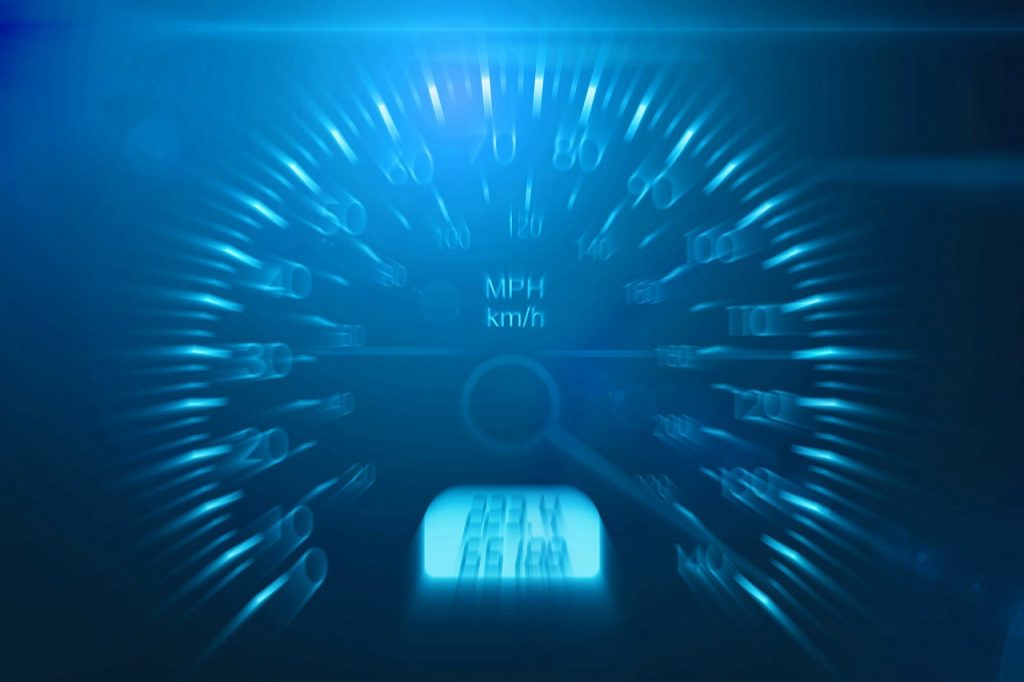From 2022, the EU proposes to make Intelligent Speed Assistance (ISA) systems compulsory for all new vehicles. The system would automatically detect the maximum speed for the road being driven on and limit the vehicle accordingly. In Part One of this post, we looked at why many are so enthusiastic about the new technology.
But as we’ll see in this post, others are not so sure.
Could ISA systems actually increase collisions?
While Road Safety groups celebrated the EU’s proposals for ISA, other motoring commentators were more cautious. In fact, some have argued that ISA systems could make roads more dangerous. There are several potential problems:
1. Driving to the limit
AA President Edmund King pointed out that drivers might rely on the ISA system too much. Drivers may assume that if the car permits them to drive at a speed, then that speed is safe. However, there are many situations in which the safe limit is well under that which would be recognised by the car — for example, if children are playing nearby. Mr. King commented:
The best speed limiter is the driver’s right foot and the driver should use it to do the right speed in the right situation.
2. Overtaking and speed limiters
Mr. King also pointed out that sometimes a little extra speed can make us safer, “for example, [when] overtaking a tractor on a country road or joining a motorway.”
However, it does seem as though these fears are misguided, as drivers will be able to override speed limiters by pressing the accelerator.
3. Other road users
Steve Cropley at Autocar has a slew of objections to ISA, including the problem of how other road users respond to ISA-equipped cars. He points out that:
For the first decade of the new regime, unrestricted cars will outweigh those with speed limiters. It’s anyone’s guess how this will play out in the traffic, but the presumption must be that it won’t be pretty. As far as the driver of a 2020 Ford Focus is concerned, the driver of the 2023 model will be making a lot of unwarranted and unpredictable speed reductions. More rear-end collisions beckon.
4. The problem of inattention
A few weeks back, we blogged about the rising number of accidents that have involved automatic driver assistance. We suggested that giving drivers less to do can actually make them worse at the remaining, essential tasks. This might apply to ISA systems too. Unfortunately, when driving requires less input, we pay less attention to it: think, for example, about how much our minds can wander on long motorway journeys when the cruise control is switched on.
Given that problems from inattention are a major factor in fatal collisions, could ISAs simply replace one cause of accidents with another?
Hang on…haven’t we been here before?
So, ISAs could cause a number of problems, any of which could reduce their effectiveness, or introduce new dangers to our roads.
At this point, however, old-timers might be asking an important question: haven’t we been here before?
In 1972, front seat belts were made compulsory for all cars sold in the UK. Eleven years later, wearing a seat belt was also made mandatory. Those of us around at the time will remember that there was considerable resistance to wearing seat belts. The usual reason invoked was, again, safety. Everyone and his mother had a story about someone ‘thrown clear of an accident’ because they didn’t have their seat belt on. Seat belts, it was said, would trap you if the car caught fire.
Decades on, some of these objections seem absurd, and seat belts are now universally accepted as a huge step forward in saving lives. Will the criticisms of the ISA turn out to be just as ill-founded? The short answer is that, at the moment, nobody really knows. To state the obvious, seat bealts and ISAs are two very different technologies — and just because seat belts proved their worth doesn’t mean that ISA systems will. Until the systems are tested in a real world context, it’s anyone’s guess.
Is the ISA debate really over safety?
Thinking back to when seat belts were made compulsory, in retrospect it seems obvious that the objection was never really to do with safety. Behind the safety concerns, the real objection was that people just didn’t like being told to wear them.
Could the objections to ISA systems also be more to do with motoring freedom? As motorists, many of us love the feeling of freedom that a car gives us. Our cars are our small sanctuaries, a refuge from the world where we are in control. And when governments try to impinge on that — whether it’s by a seat belt or a speed control system — maybe it’s understandable that it’s met with a low growl of protest.
The WVS blog covers a wide range of automotive topics, from the contentious to the light-hearted. We are an independent garage specialising in all the VW group marques, including Audi, Volkswagen, Skoda and SEAT. WVS provide services, repairs and MOTs, delivering a main dealer level of care at affordable prices. To book your vehicle in, or for any enquiries, get in touch.


